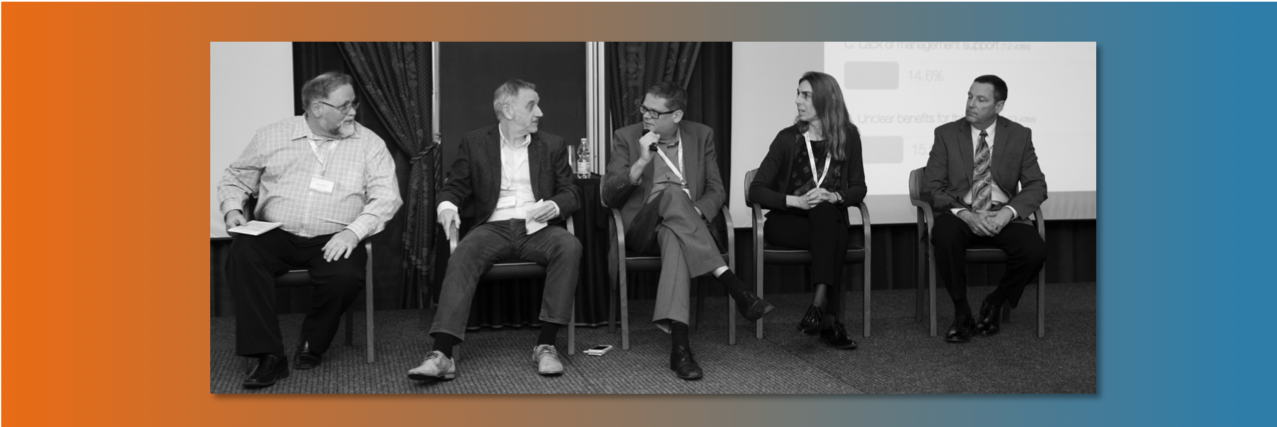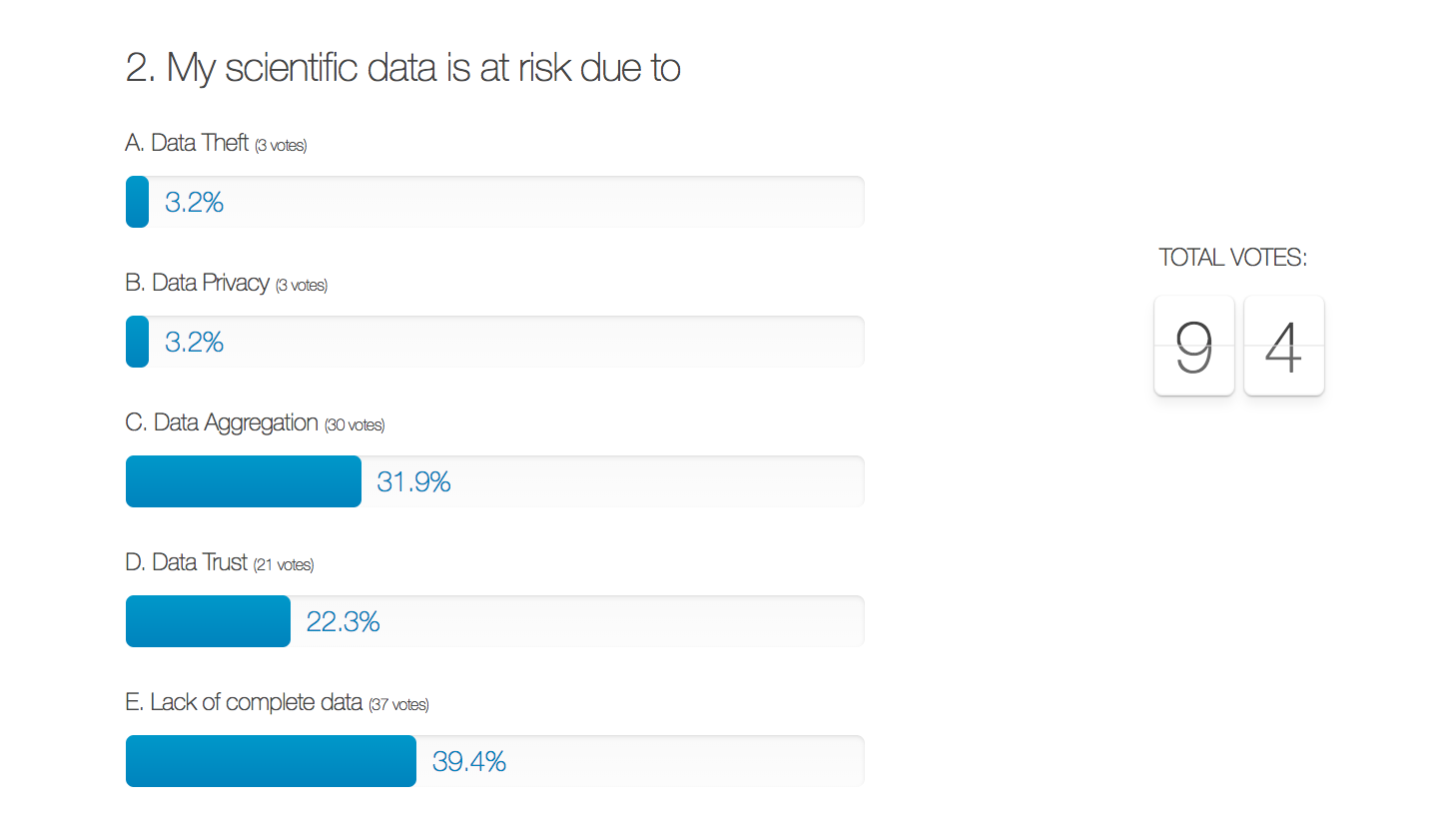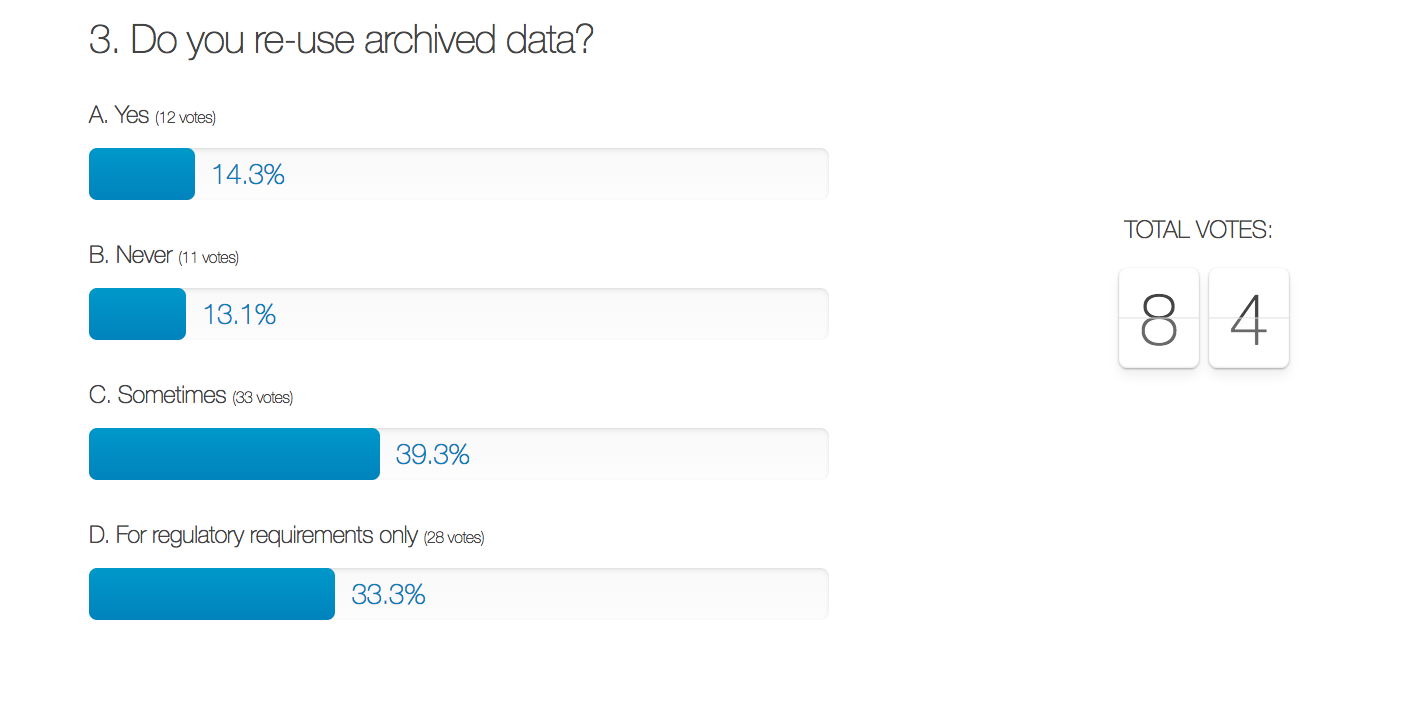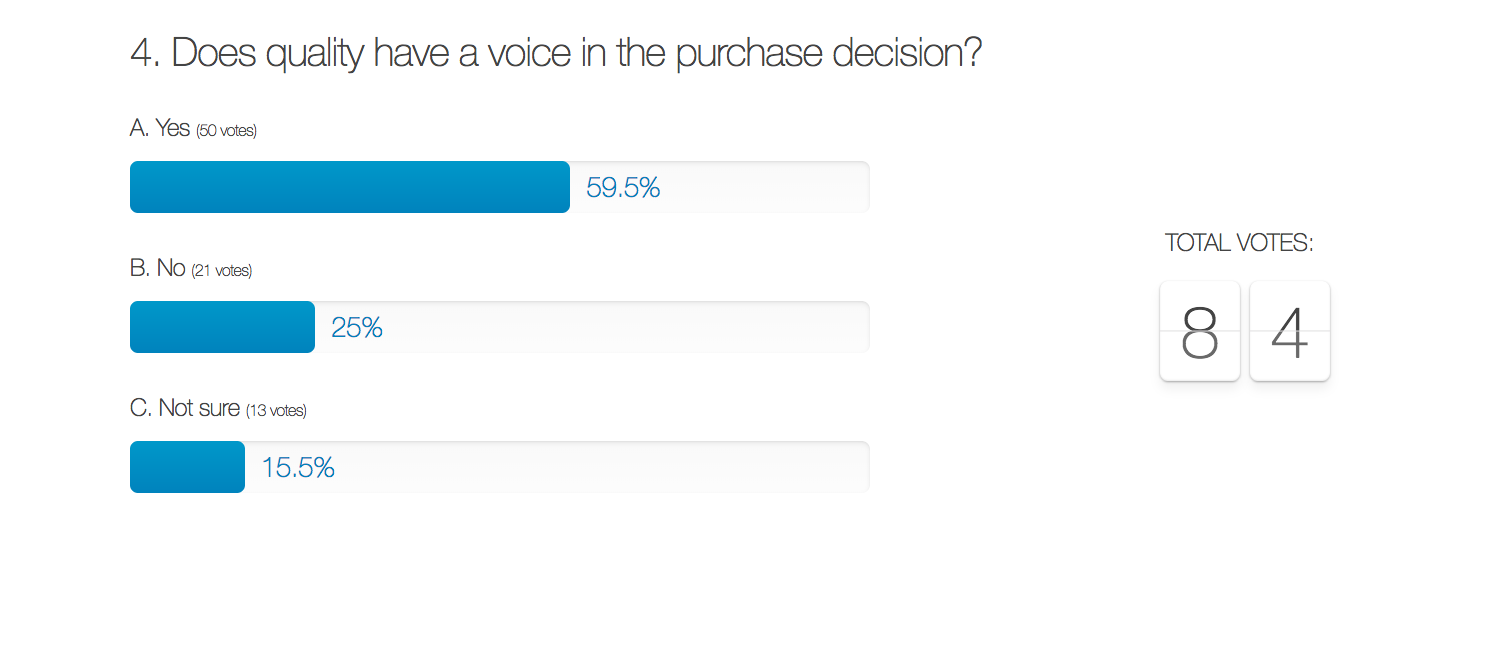Food for thoughts from the PLA2018 interactive Panel Forum

The interactive panel forum, a new initiative launched by the 6th edition of the event, has allowed us to bring together a very interesting multidisciplinary poll of thought leaders coming from different markets.
from left to right:
- Mark Newton – Principal at Heartland QA – retired Associate Sr Consultant QA EliLilly
- Rik Pepermans – It Innovation lead, IT R&D at Unilever
- Marco de Groot – RT&D Data and Information Manager at DSM Biotechnology Center
- Maud Destree -e-Analytics Operations Manager at UCB Pharma
- Patrick Pijanowski – Managing Director at Accenture Scientific Informatics Services
The discussion aimed to develop further on the central theme of the edition, the four main layers of a laboratory paperless strategy: ” eConnect, eManage, eDecide, eArchive” or also called 4 e-data lifecycle based themes
see: NL42 article published in the Scientific Computing World annual review ” Building a Smart Laboratory 2018″
Fact is that another new initiative implemented this year, a paperless one, the new PLA App, has allowed a stronger involvement of the audience during this session . The App has eased the process of collecting in realtime manner answers to 4 questions from the audience.
1. eManage – Business drivers to facilitate data lifecycle
The discussion was an excellent exercise looking for identifying the major business drivers to facilitate lifecycle information chain and which could be the major roadblocks. Interestingly enough along with the technical limitation due to inherited legacy infrastructure and systems, the lack of change management mindset appears being a strong roadblock. Individual resistance to changes and lack of corporate leadership in driving the change are important risks to be assessed carefully when defining a new project. Of course those risks could be mitigated with a clear visibility on the benefits as well as involvement and efforts required.
From there the discussion went challenging the possibilities of considering Blockchain as a potential alternative to improve lab operations, reduce costs. ideally the self regulation aspect of the Blockchain could also potentially be of very valuable support to reduce the validation efforts when implementing new solutions, updates and upgrades…
Question: Which are the major business drivers to facilitate data lifecycle, information chain?
A. Inconsistent existing technology systems
B. Organizational silo mindset. Lacking to adopt change management processes
C. Not sure why a life cycle based approach will benefit anyway
D. Lack of cross functional management support
2. eDecide – The Cost and Pain of Information Theft
When comes to access enough information for the business decisions making several concerns raise up. Am I getting the right and complete information to make decisions? Fact is that ideally, multiple data coming from multiple data sources should arrive in one single dashboard to facilitate a full view. Yet how can we completely trust the data analytics when raw data can´t be assessed anymore since their pathway up to the last system layer has disabled the access to the source of the data. how much can we trust that each interface up to last system layer has enable the integrity of the data.
Question: Which is my biggest data concern to make scientific conclusions?
A. Data Theft (missing crucial data)
B. Data Privacy (lack of access to complete dataset)
C. Data Aggregation (incomplete set of access to multiple data sources)
D. Data Trust (e.g. trust of data source, lacking meta or ontologies)
E. Not able to join different data sources
3. eArchive – Archives and Data Standardization
Question: Do you re-use archived data?
A. yes
B. never
C. sometime
D. for regulatory requirements only
4. eConnect – Robust electronic records and transfers
Question: Does Quality have a voice in the purchase decision?
A. yes
B. no
C. not sure
“Great content and organization. I think the App is really useful and that you could increase its use to get more insight from voting”
“Great app! I loved the app, a fantastic concept and excellent way to create notes about specific topics in one area”
Latest Posts
Key Topics of the PLA2024India
PLA2024India, 5th edition, promises a programme full of interactions and discussions. 4 focused sessions and 2 training workshops The main theme of #P
14 May 2024
Press Release: PLA® Conferences to partner with IA-Meetings for its 5th Indian Edition.
The Paperless Lab Academy® (PLA) is a leading conference about digital transformation of laboratory and quality processes. Above all, it is about mas
08 April 2024
The #PLA2024Europe programme aimed to highlight the importance of the human factor in digital transformation with several presentations and panel disc
19 March 2024




